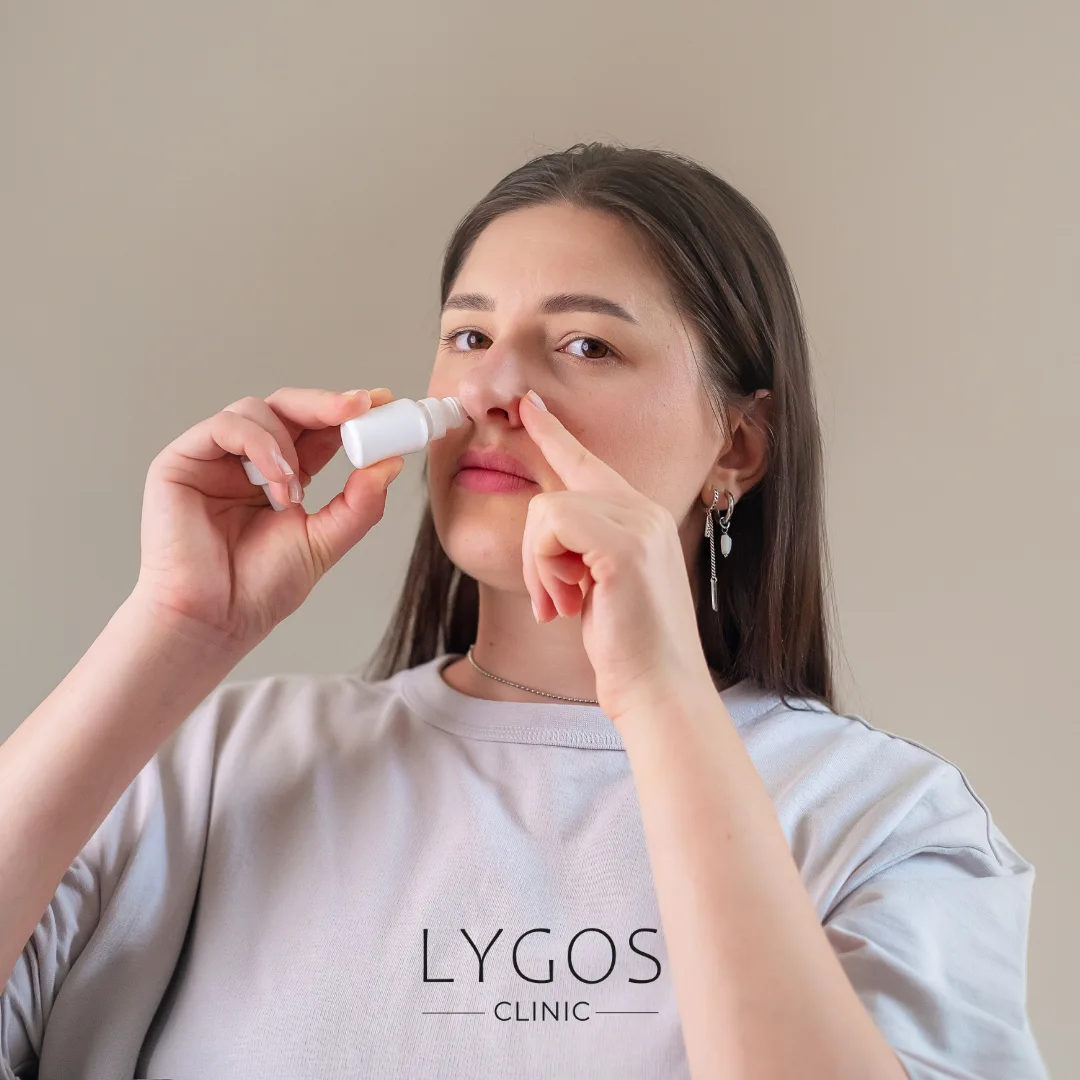How Should Nasal Cleaning After a Nose Surgery Be Done?

Chose Your Topic
How Should Nasal Cleaning After a Nose Surgery Be Done?
Nasal cleaning after a nose surgery is an important part of the recovery process following surgical interventions done for aesthetic or functional reasons. If nasal cleaning is not performed correctly, the recovery process may be prolonged, and unwanted complications may arise. So, how should nasal cleaning after a nose surgery be done? In this article, you can find detailed information.

How Should Nasal Cleaning After a Nose Surgery Be Done in the First Few Days?
In the first days after a nose surgery, nasal cleaning should be done with great care. If nasal cleaning is not performed with the correct techniques, the risk of swelling, bleeding, and infection may increase.
- Follow Your Doctor's Recommendations: It is crucial to follow the methods suggested by your doctor for nasal cleaning after a nose job.
- Avoid Straining Movements: During nasal cleaning , squeezing or wiping the nose harshly can negatively affect the healing process.
- Use Saline Sprays: For nasal cleaning after a nose job, saline solution or ocean water sprays should be preferred.
- Gentle Cleaning is Important: When performing nasal cleaning, it is enough to gently clean the outer part with sterile cotton and saline solution.
What to Pay Attention to While Cleaning Inside the Nose?
When performing nasal cleaning after a nose surgery, it is important to consider the sensitivity of the inside of the nose. If nasal cleaning is done incorrectly, it can lead to irritation and infection risks.
- Don’t Clean Too Hard: Nasal cleaning should be done with gentle movements instead of harsh cleaning.
- Avoid Using Cotton Swabs: Using cotton swabs for nasal cleaning may cause irritation.
- Be Careful When Using Nasal Sprays: Nasal sprays should be used carefully and in moderation for nasal cleaning.

Which Products Should Be Used for Nasal Cleaning After a Nose Surgery?
Using the right products for nasal cleaning after a nose job can accelerate the recovery process.
- Saline Solution: One of the most reliable solutions for nasal cleaning after a nose job.
- Ocean Water Sprays: Sea-water-based sprays are helpful for relaxing the inside of the nose.
- Antiseptic Solutions: Antiseptic solutions should be used under the supervision of a doctor for nasal cleaning after a nose job.
Mistakes to Avoid During Nasal Cleaning After a Nose Surgery
There are certain mistakes to avoid during nasal cleaning. Incorrect practices may negatively impact the healing process.
- Wiping or Scrubbing the Nose Too Harshly During Nasal Cleaning.
- Trying to Clean Inside the Nose with Cotton Swabs.
- Using Nasal Sprays or Solutions Not Recommended by Your Doctor for Nasal Cleaning.
- Forcing to Remove Scabs During Nasal Cleaning After a Nose Job.

How to Relieve Crusting and Dryness After Nasal Cleaning Following a Nose Surgery?
When nasal cleaning is done regularly, crusting and dryness decrease. Here are some measures you can take during nasal cleaning after a nose surgery:
- Drink Plenty of Water: Sufficient fluid intake is essential for nasal cleaning after a nose job.
- Use Moisturizing Sprays: Using saline sprays during nasal cleaning helps maintain the moisture balance of the nose.
- Apply Moisturizing Creams under Doctor's Supervision: Moisturizing creams can be applied during the nasal cleaning process after a nose surgery, with the doctor’s approval.
Nasal cleaning is one of the most critical stages of the recovery process. By following the methods mentioned above, you can protect your nasal health during nasal cleaning. In case of any unexpected situations, always consult your doctor.
What to Do If There Is Swelling or Sensitivity After Nasal Cleaning Following a Nose Surgery?
If you experience swelling or sensitivity after nasal cleaning following a nose surgery, you can try the following:
- Apply a Cold Compress: Applying cold to the eyes and nose can reduce swelling.
- Clean the Nose More Gently: Excessive cleaning may cause irritation to your nose.
- Consult Your Doctor: If swelling and sensitivity persist, consult your doctor.
Nasal cleaning positively affects the recovery process. By paying attention to the methods mentioned above, you can support the healthy healing of your nose. However, if you experience any complications or unexpected situations, always consult your doctor.
Nasal Cleaning After a Nose Surgery Frequently Asked Questions (FAQ)
Nasal cleaning after a nose surgery is crucial for maintaining proper hygiene, preventing infection, and aiding in the healing process. It helps clear out mucus, crusts, and other debris from the nasal passages, ensuring a smooth recovery.
You can start nasal cleaning after a nose surgery once your doctor gives you the go-ahead, typically a few days post-operation. It is essential to follow your doctor's advice to avoid disturbing the healing process.
You should use saline solution or ocean water sprays recommended by your doctor for nasal cleaning after a nose surgery. Avoid harsh chemicals or products that could irritate your nasal passages.
No, you should avoid using cotton swabs for nasal cleaning after a nose surgery. Cotton swabs may cause irritation or injury to the sensitive nasal passages, hindering the healing process.
If nasal cleaning after a nose surgery is not done properly, it can lead to complications such as infection, increased swelling, discomfort, or delayed healing. Always follow your doctor’s guidance to minimize risks.


